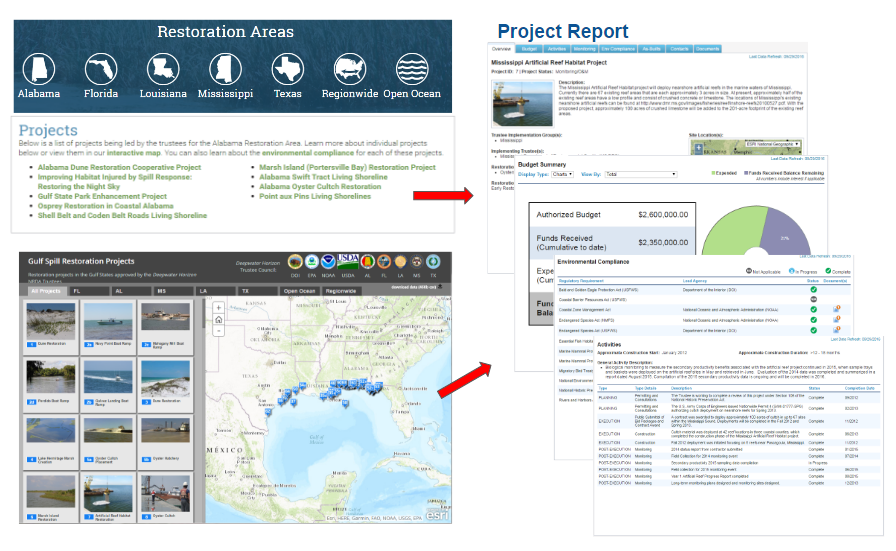Dive into Restoration Project Data
The Trustees are committed to providing annual reports to the public to show our restoration progress, as well as how we’re spending settlement funds.
You can find a summary report of fund allocations and expenditures.
You can find project reports on each restoration area page and on our interactive map. Project reports provide detailed project information including descriptions, maps, activities, and dashboards with financial and environmental compliance information.

You can also find more advanced data exploration tools in the Data Integration Visualization Exploration and Reporting

